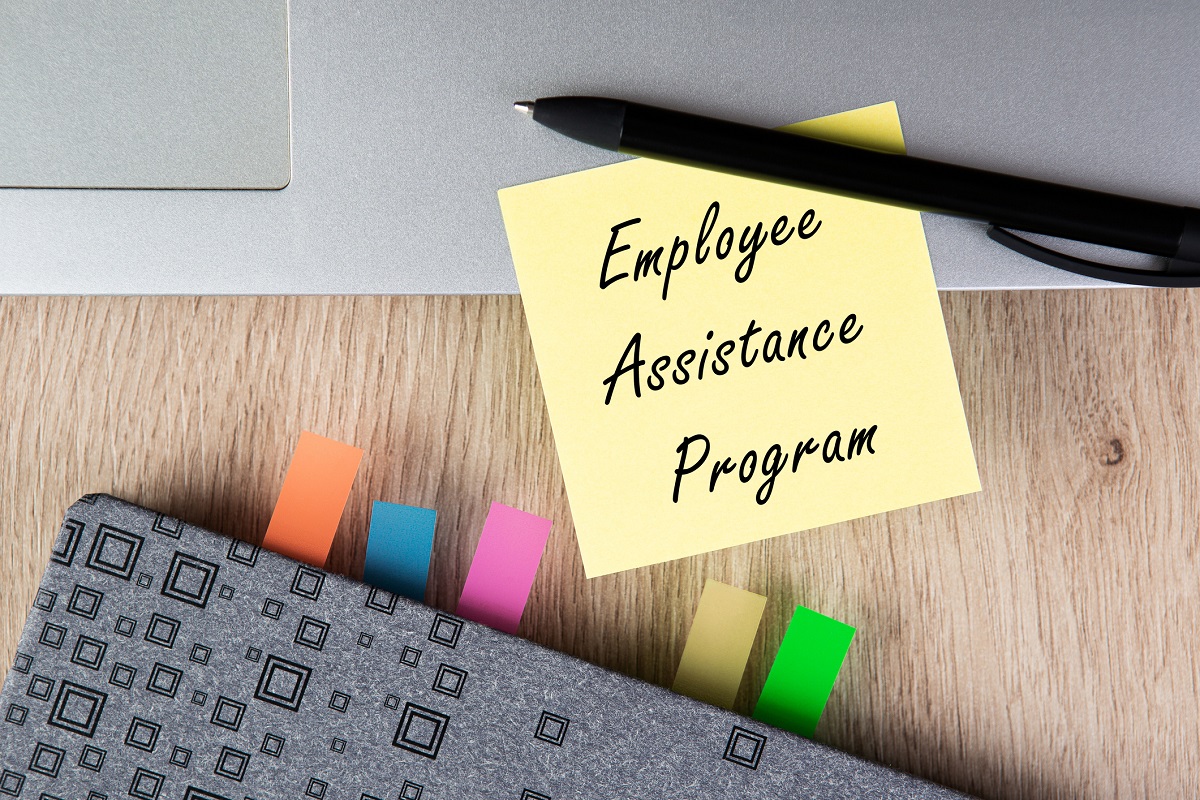The phone call: SupportLinc Employee Assistance Program helps family connect with counselor

For Laurie Augello’s family, the pandemic was a perfect storm. She found a life raft in Penn State Health’s Employee Assistance Program.
Like just about everyone, Augello, an oncology nurse at Penn State Health Milton S. Hershey Medical Center, had challenges enough before COVID-19. Seven years earlier, she’d given birth to her second son. After a battery of tests, doctors discovered he had Russell-Silver Syndrome, a slow-growth disorder with severe complications. Doctors told her the boy would have autism.
Augello, who has worked as a nurse for a quarter century, could divine what her life would become in the statistics she read about the illness. Augello’s condition would be life-changing. It would mean running to seven doctors at three hospitals as far away as New York City for specialized therapy. It would mean constant one-on-one and often two-on-one attention to handle her new child’s wildly unpredictable behavior at all hours.
And it would mean stress. From what she read, 85% of couples dealt similar cards end up in divorce.
Prepared
Her first-born was 4 years old when his little brother arrived. He was already thoughtful and empathetic, a sponge for the emotions of others. “He went from being the only child to getting the crumbs of my day,” she said.
The family marched into their new life prepared. Their special-needs child thrived in therapy. A developmental pediatrician from the Milton S. Hershey Medical Center gave Augello a 10-page note about her son’s condition that contained what she felt was the best advice she’d ever received: Get the family mental health help right out of the gate, she’d said.
Her older son did well with the stress at first. Around age 7 or 8 he began to experience anxiety, and who could blame him? This disorder often causes his little brother, who doesn’t speak, to scream. One moment he greets you and the next he pulls your hair. The house was often filled with tension. Augello worked with school counselors to make sure the older boy was processing everything while the younger one progressed with his therapy.
Pandemic arrives
COVID-19 arrived when the older boy was 10 years old. His school closed. All the therapy her younger son needed stopped. The family suddenly found themselves sealed in their Harrisburg home.
As he turned 11 years old, isolation began to take a toll on the older boy, and that’s when he began exhibiting the warning signs she’d worried about. “He went to a dark place,” Augello said. Again, Augello saw a disturbing narrative in statistics. Suicide rates had increased rapidly among kids his age.
Augello needed to help her son immediately. She couldn’t wait for psychologist offices to reopen.
So, she called Penn State Health’s Employee Assistance Program.
The phone call
Today, the SupportLinc Employee Assistance Program offers emotional well-being and work-life balance resources. It provides guidance to help employees address and resolve everyday issues at no cost to the employee or their family.
Using a variety of platforms, the service offers:
- In-the-moment support and short-term counseling
- Legal consultation
- Convenience resources, including referrals that help address a wide range of challenges such as child or elder care, adoption, pet care, home repair, education and housing needs.
- Financial expertise
Augello dialed the number and connected immediately with someone who could help her. The conversation took about 10 minutes. Within a day or two, Augello received an email connecting her with a local therapist who could help right away.
“It’s difficult to find places on your own because of wait lists,” Augello said. “I didn’t have to go searching through lists. They took away all of that logistical stuff.”
Within days, her son was meeting online with a therapist. Augello sat in with the two of them at first to help her son get past any initial shyness. Then her son and the therapist started meeting online on their own. He trusts her.
A few weeks ago, her son, now age 12, asked why he was still seeing the therapist. “I’m fine,” he told her.
She suggested that he keep on with the appointments, and her son agreed. “It’s good having a place to vent,” he said.
Since her son’s success, Augello called the Employee Assistance Program again. This time she made a connection for a husband, giving him access to a one-on-one counselor via video chat for support and strategies to deal with the stressors of life as a special needs parent. Augello is also hoping to speak with a counselor about her own stress.
“The employee assistance group has been absolutely amazing,” she said.
All requests for information or assistance are free of charge and completely confidential. Access support whenever needed, wherever is most convenient. Contact SupportLinc 24 hours a day, 365 days a year, at 888-881-5462, visit www.supportlinc.com, group code psh, or email support@curalinc.com.
If you're having trouble accessing this content, or would like it in another format, please email Penn State Health Marketing & Communications.
